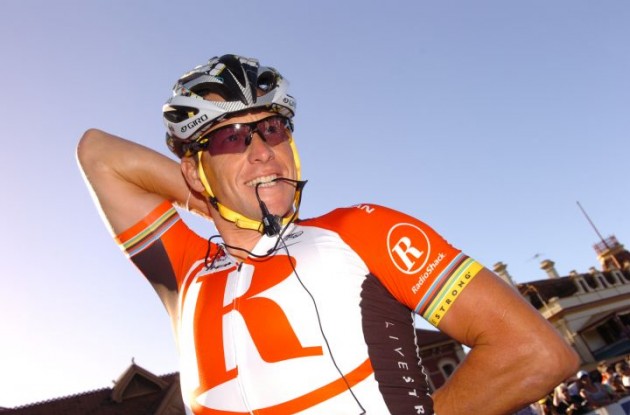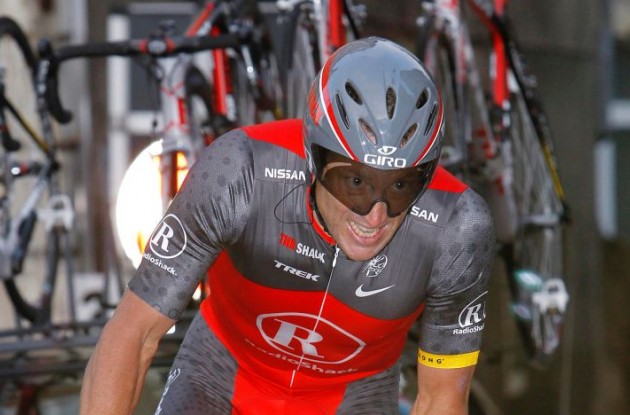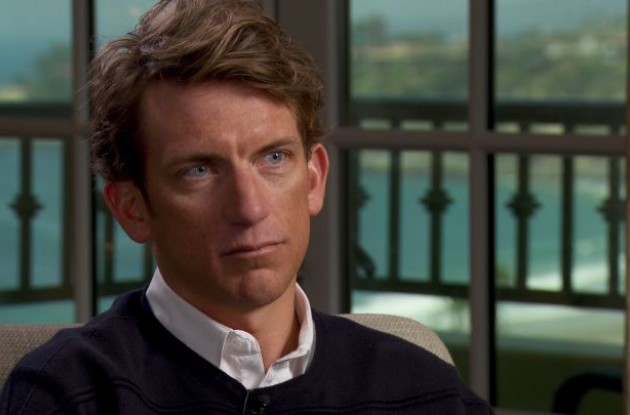Tyler Hamilton Sheds Light on Lance Armstrong's 1999 Samples
New revelations from Lance Armstrong's former teammates on "60 Minutes," combined with recent requests by federal authorities for evidence in France, have fed a sense of growing trouble for the world's most famous cyclist.
New revelations from Lance Armstrong's former teammates on "60 Minutes," combined with recent requests by federal authorities for evidence in France, have fed a sense of growing trouble for the world's most famous cyclist.
One of Armstrong's former teammates, Tyler Hamilton, told "60 Minutes" he saw the seven-time Tour de France winner use EPO during his first Tour de France victory in 1999. Meanwhile it was reported last month that federal investigators looking into the Armstrong case recently asked French authorities to turn over evidence, including Armstrong's urine samples from the same year.
Though an investigation by cycling's international federation dismissed those controversial samples, they are clearly back in play as the feds investigate whether Armstrong's U.S. Postal team engaged in systematic doping, a case that could lead to charges of fraud and conspiracy.
Armstrong, an international celebrity and cancer survivor who has raised millions of dollars to fight the disease, has long denied doping and has never tested positive.
"20+ year career. 500 drug controls worldwide, in and out of competition. Never a failed test. I rest my case," Armstrong tweeted when the "60 Minutes" excerpts first came out. The report airs in its entirety Sunday night.
Armstrong's 1999 samples came under scrutiny in 2005 when the French sports daily L'Equipe reported that six of them had, in fact, tested positive for the endurance-boosting hormone EPO when they were retested in 2004. An investigation by the International Cycling Union (UCI) followed and concluded, in 2006, that the samples were mishandled and couldn't be used to prove anything.
But the samples still exist and are part of the cache of evidence the feds are asking for.
Those samples, along with bank and phone records and witness testimony about drug use, could help paint a picture of a systematic doping program being run by Armstrong and his U.S. Postal team.
Armstrong won the Tour de France every year from 1999-2005.
Any federal case against Armstrong won't be decided based solely on whether he doped. The feds are investigating what essentially would have been a multimillion-dollar drug distribution network that was formed to keep Armstrong's teams running at the head of the pack.
The report earlier this month also said the French, in addition to providing samples from 1999 and other years, had been asked to interview and take witness statements from people in that country who were connected to U.S. Postal or who worked in French anti-doping while Armstrong was competing.
The "60 Minutes" piece, portions of which were aired on the "CBS Evening News" on Thursday and Friday, also uses unidentified sources to report that former Armstrong teammate and close friend, George Hincapie, has testified to a grand jury that he and Armstrong supplied each other with endurance-boosting EPO and discussed having used testosterone, another banned substance to prepare for races.
When those details were reported Friday, Hincapie released a statement saying he did not talk to "60 Minutes."
"As for the substance of anything in the '60 Minutes' story, I cannot comment on anything relating to the ongoing investigation," he said.
On Sunday, a website launched by Lance Armstrong's camp to counter the CBS reporting, put out a statement: "In its unpardonable zeal to smear Lance Armstrong, CBS has also attacked the reputation of George Hincapie," it said and added "We are confident that the statements attributed to Hincapie are inaccurate and that the reports of his testimony are unreliable."
Earlier, the website also attacked Hamilton, who has been banned twice for doping despite his long insistence that he never cheated. Hamilton now admits he did use performance enhancing drugs and has given his 2004 Olympic gold medal to the U.S. Anti-Doping Agency.
In a part of the "60 Minutes" interview aired Thursday, Hamilton, who said he testified for six hours to the grand jury, said Armstrong took EPO in the 1999 Tour de France and before the race in 2000 and 2001.
"I saw (EPO) in his refrigerator. ... I saw him inject it more than one time," Hamilton said, "like we all did. Like I did, many, many times."
Hamilton told "60 Minutes": "(Armstrong) took what we all took ... the majority of the peloton," referring to riders in the race. "There was EPO ... testosterone ... a blood transfusion."
Armstrong's camp says Hamilton is changing his tune now because he's trying to sell a new book.
"Tyler Hamilton is a confessed liar in search of a book deal -- and he managed to dupe '60 Minutes,' the 'CBS Evening News,' and new anchor Scott Pelley. Most people, though, will see this for exactly what it is: More washed-up cyclists talking trash for cash."










